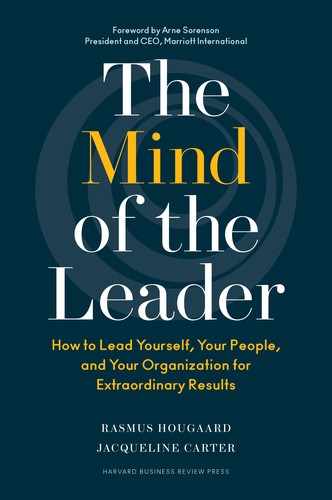Foreword
Marriott was started in 1927 as a nine-stool root beer stand in Washington, DC, which added hot food to the menu when winter came. Later the business grew to a single hotel and subsequently the world’s largest hotel chain. A few years after J. W. and Alice Marriott founded their enterprise, the Great Depression hit, putting all American businesses and employees under pressure. How did J. W. and Alice respond? They put a doctor on staff to make sure their people had health care. Why? Well, they cared about them, of course. But they also wanted a reliable, healthy, well-cared-for workforce. They believed that if their employees had access to good medical care, they would be better able to provide the level of service they wanted for their customers.
Putting people first has always been the cornerstone of our success. We believe that if we take care of our people, they take care of our customers, and business will take care of itself. Even after the 9/11 terror attacks in New York, where we went from an occupancy rate of 75 to 5 percent overnight—where our hotels stood empty of guests but full of staff—putting people first was our priority. Rather than undergoing massive layoffs, we set in place education programs, maintained health benefits, and did all we could to come through the crisis with minimal negative impact on our people.
In a business like ours, and I believe any other industry, we simply cannot succeed unless people are truly engaged and happy in their work. It is our commitment to create an environment where the unique contributions of our people are valued. Marriott being consistently regarded an employer of choice is, I believe, a result of these efforts.
Fostering a “people first” culture starts with leadership. Leaders must model the way. They must act, interact with, and engage with the people they lead in a way that makes people feel seen, heard, and valued.
In The Mind of the Leader, Rasmus Hougaard and Jacqueline Carter are providing a clear pathway for creating “people first” organizations. It calls for leaders to be humans first: to be mindful, selfless, and compassionate and in doing so, to develop the qualities that enable engagement, fulfillment, and meaning—which lead to greater business success.
If we as leaders are mindful, we will better know what really matters to our people. We are more present, attentive, and curious. It is not always easy, but I know the difference between being present with my people and when I am not. I only have impact when I am.
If we as leaders are selfless, taking the bigger picture into account rather than our own egoistic needs, we model cultures of growth and learning. Bill Marriott, our executive chairman, even now in his eighties, always has his ears open. He is always looking for the perspective of others, rather than blindly following his own beliefs and ideas.
If we as leaders are compassionate, our people will know we have their back. As this book clearly describes, compassion is not soft and sentimental. It is concrete and practical. It’s about doing the right thing, like putting a doctor on staff during the Depression. Again, if we truly care for our people, they will truly care for our customers, and business will take care of itself.
In many ways, the principles of this book go against the grain of how many businesses are run. It inspires me and provides insights to further evolve our culture and put people first. And I believe all leaders and other organizations will benefit strongly from its messages.
—ARNE SORENSON, President and Chief Executive Officer, Marriott International
